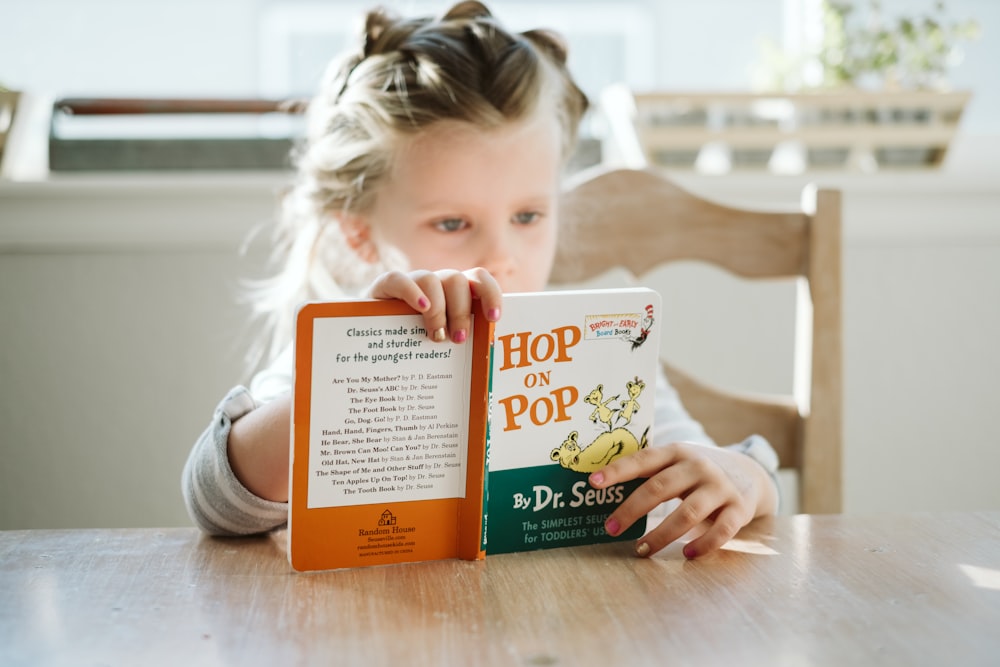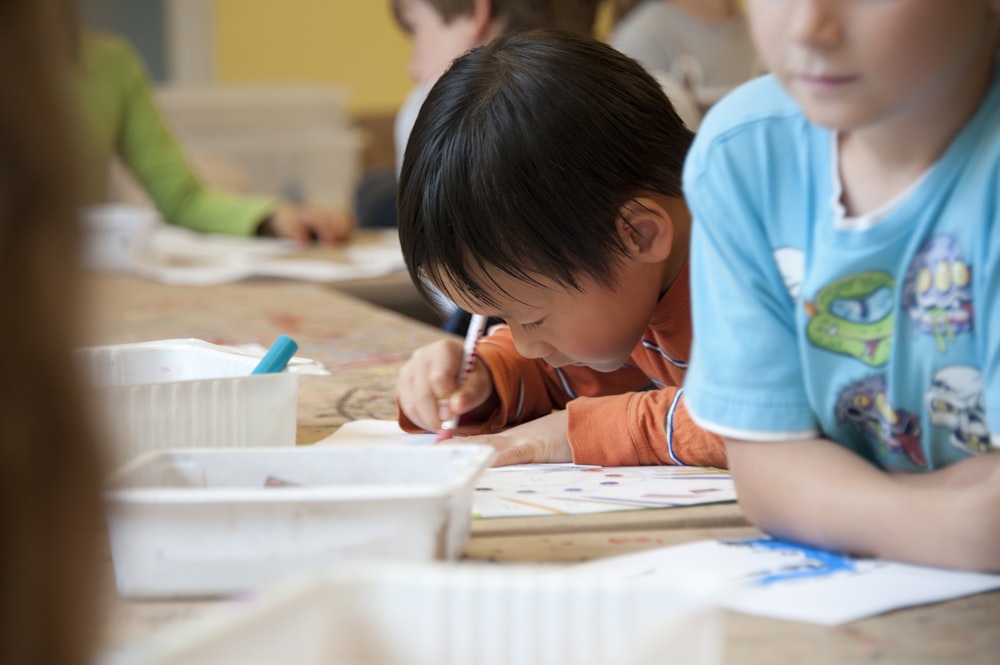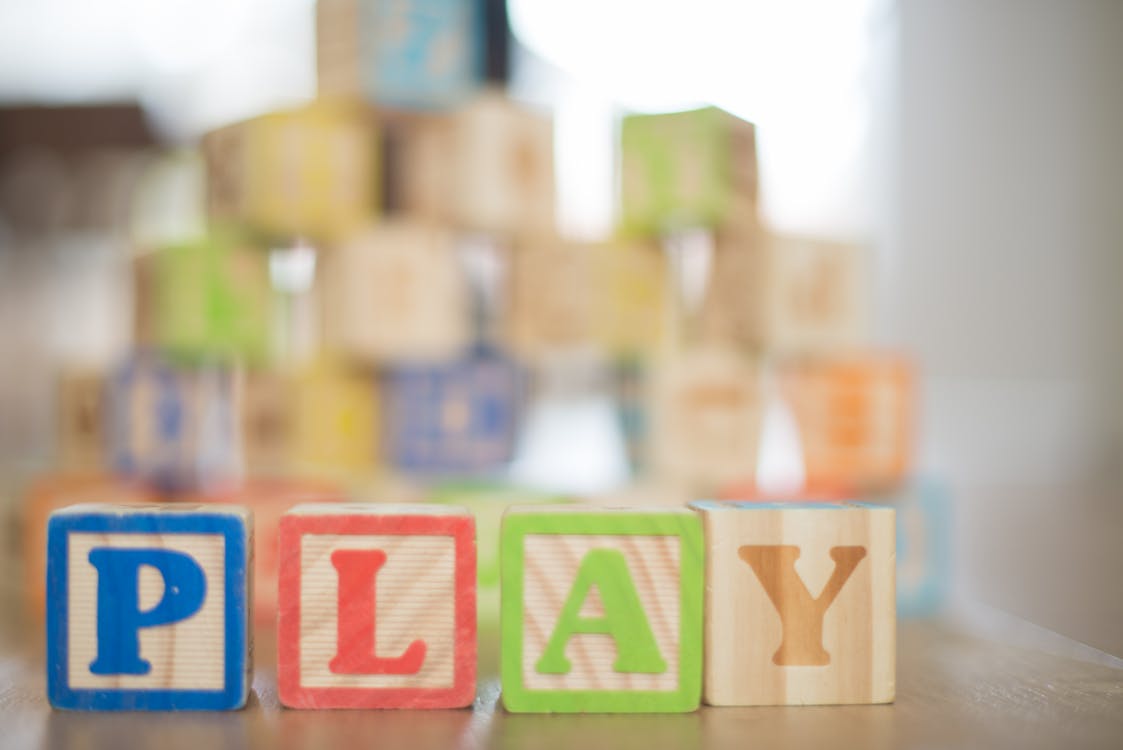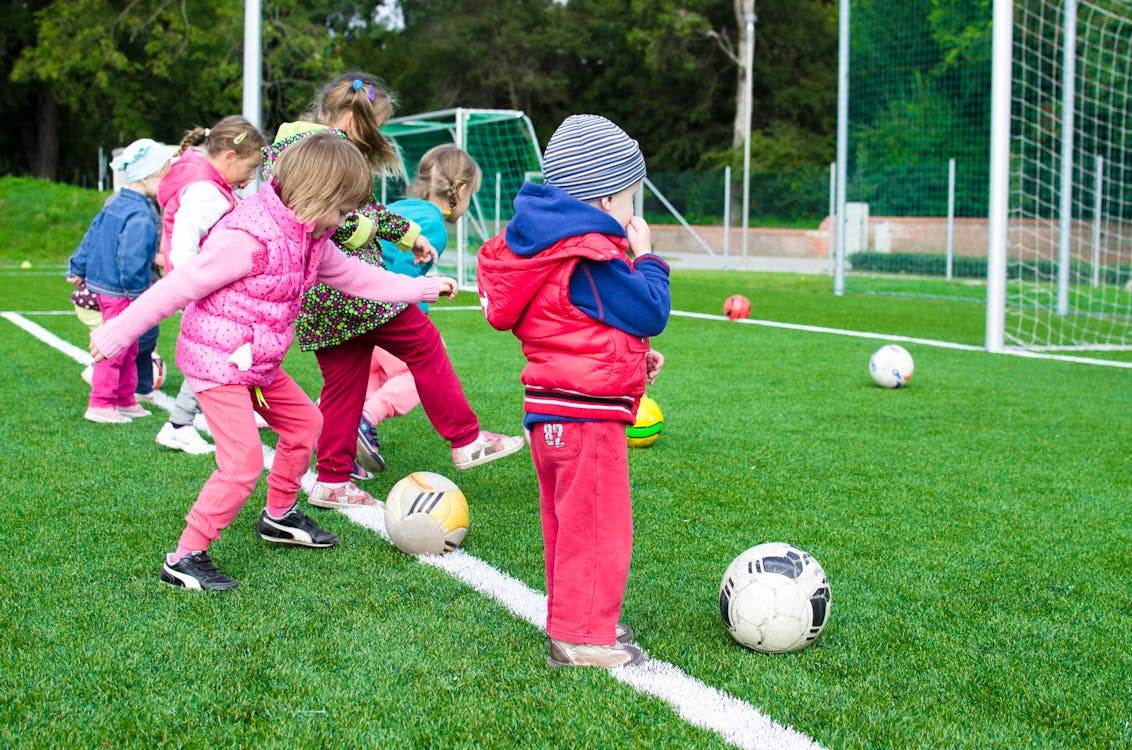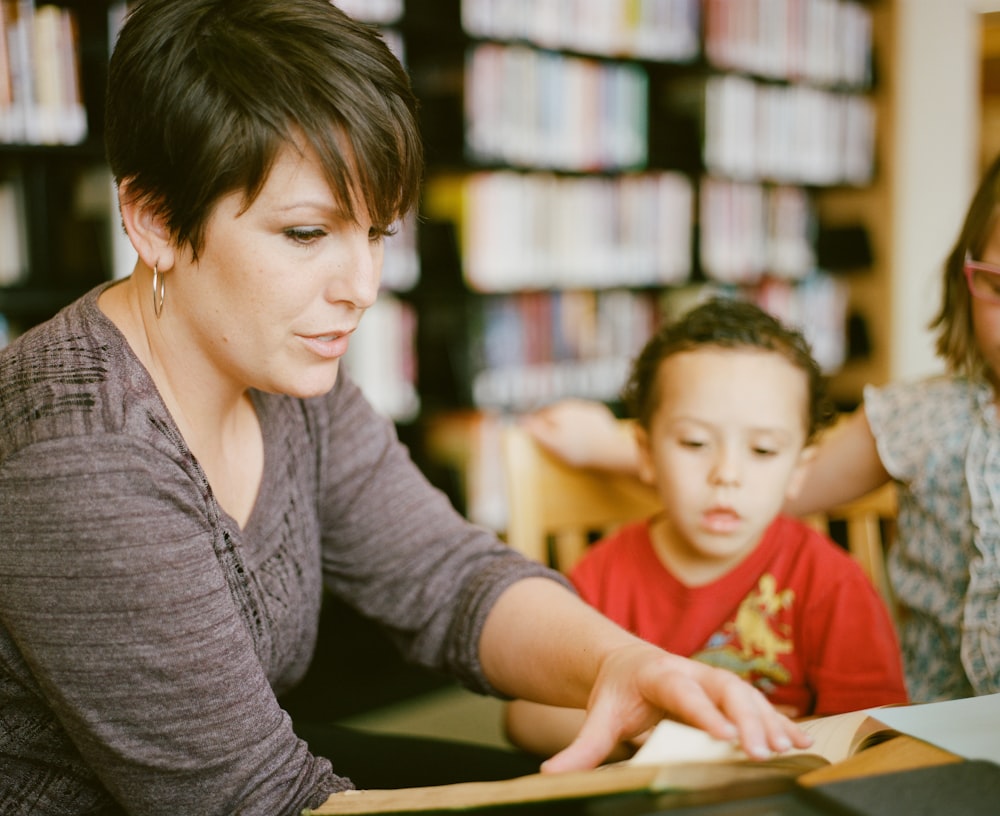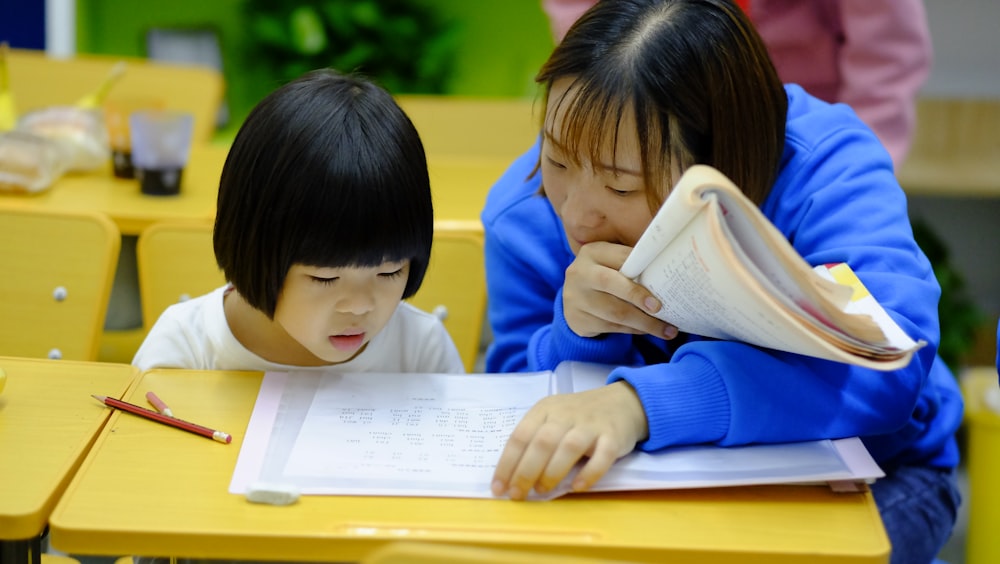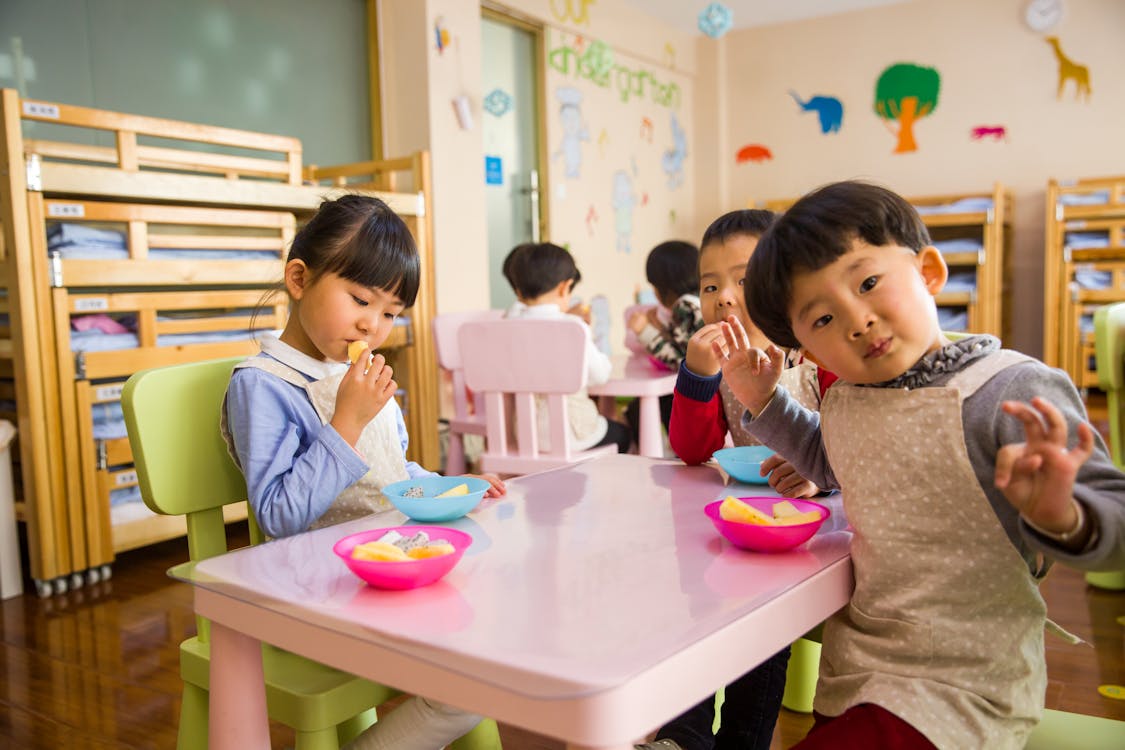For young children, one of the most important things that they’ll gain in preschool are the skills that lay the foundation for literacy. Under normal circumstances, many parents rely on the expertise of teachers to guide their children in developing these cognitive, social, and emotional skills. However, during the COVID-19 pandemic, parents are finding themselves taking on an even greater role in their child’s learning. Even though schools may be closed and many things have been put on hold because of the pandemic, learning doesn’t have to stop. To better understand what parents and guardians can do to help build their child’s emergent literacy skills, PrekAdvisor spoke to two experts in the field.
Chris Allen is the Director of Preschool and Kindergarten at Dwight School in New York City. She also serves as an adjunct professor at Hunter College, teaching classes such as Language and Literacy, Birth-Kindergarten. Julieta Carrillo is the Head of Preschool at Magellan International School in Austin, Texas. Here is what they had to say about emergent literacy and how parents can help their children at home.
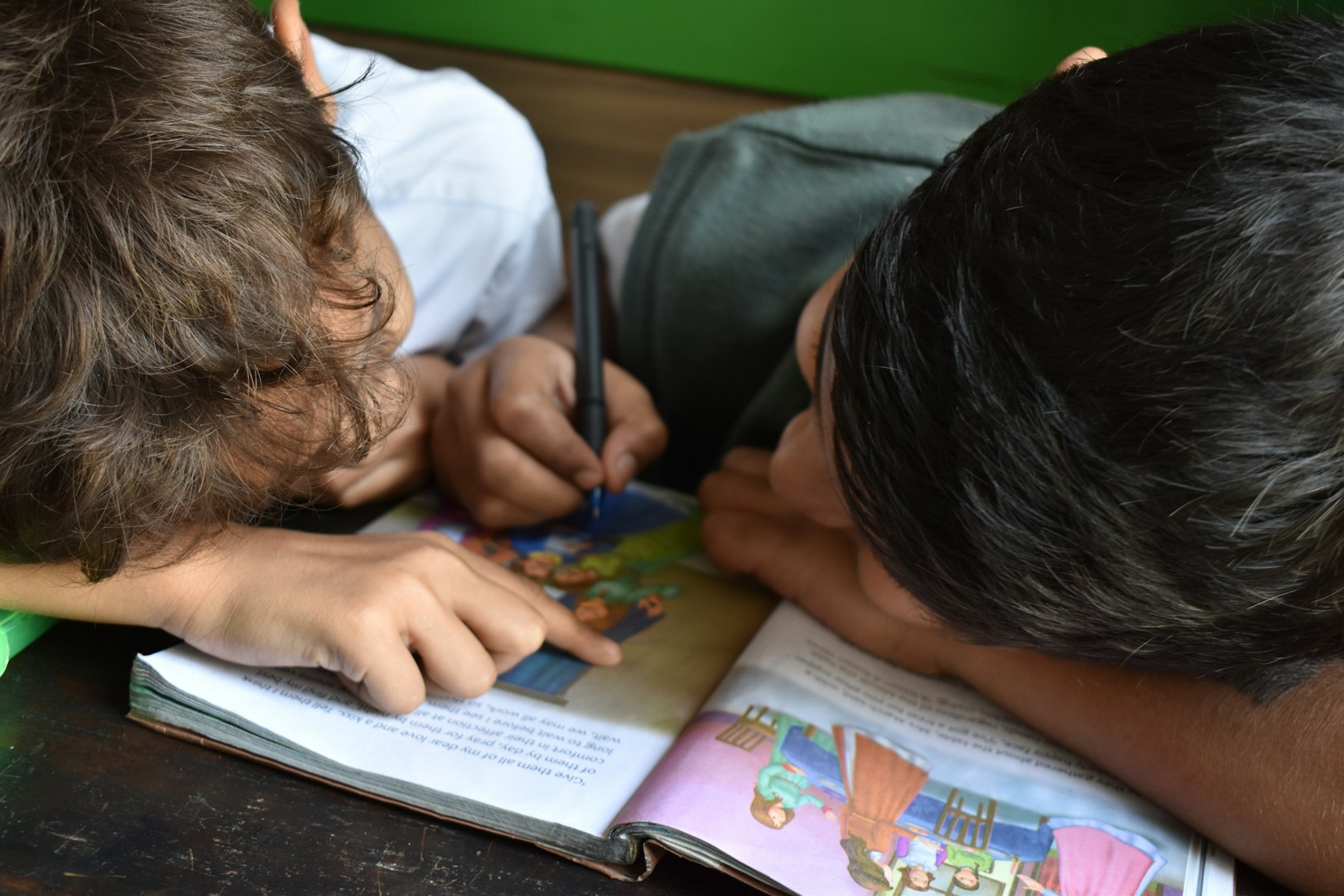
Understanding Emergent Literacy
Emergent literacy, often referred to as pre-literacy, is the foundational awareness of reading, writing, and language. Adults may not give much thought to what goes into reading and writing. After all, for us, it just seems to happen. But many parts of the brain are coming together to make all these squiggly lines on paper mean something.
“There’s a language section of your brain. There’s a memory section of your brain. Visual discrimination is part of your brain. They all have to work together to do what we call reading,” Allen explains.
During the first five years of their life, a child’s cognitive ability grows by leaps and bounds. It’s important that during this time, children are given the foundational skills in each of these areas. When the brain matures, they can bring all of those individual skills together to successfully read and write.
The Most Important Goal: Instilling a Love of Reading
It can be easy to feel like your child needs to master stringent objectives to be ready for kindergarten. You may be eager to have your child reading as soon as possible, but the truth is, there’s not much science that points to the theory that early readers make stronger readers. In fact, some research points to the opposite. For your child, there is something far more important to instill early on: the love of reading.
“If we push it too far, too fast, you’re going to have a child who’s not going to want to read,” Allen says. “They might lose that intrinsic motivation to read, and you don’t get that back.”
Instilling a love of reading does several things for a child. For one, it unlocks the door to lifelong learning. Children who are motivated to read will naturally be more motivated to take the pursuit of knowledge into their own hands and value that for the rest of their lives.
According to an article published by the University of Rochester, “[A love of reading] helps children learn to make sense not only of the world around them but also people, building social-emotional skills and of course, imagination.
So how do you build the necessary foundations and impart a love of reading without pushing your child too hard? By making it fun, of course!

Fun Learning Ideas for Preschoolers
Young children learn through play. It’s how they discover and make sense of the world around them. Informal teaching moments allow your child to experiment with language and interact with words in positive ways. Here are at-home activities that will give your child the building blocks they’ll need later for reading and writing.
Read to Your Child
“Starting from when they are babies, children need to be read to” Carrillo notes. Reading to your child is one of the single most important things that a parent can do. But it’s important to do more than just read the words on the page and point at the pictures.
Engage your child by talking about the story in a meaningful way. “Really start to pick it apart, ask questions, and make predictions,” Allen suggests. “Ask, why do you think he did that? And what would you have done in this situation?” Take your time with the stories and spark your child’s imagination.

Cooking and Baking Together
A lot of learning can take place in the kitchen. Having your child help you with recipes and grocery lists starts moving the gears in language sections of the brain. They can even work on basic math skills by sorting, counting, and measuring ingredients. Stirring and combining bowls of mixtures builds fine motor skills, which will later come in handy when a child starts writing.
Working towards a goal (and a sweet one at that) motivates your child and teaches them lessons that they don’t even realize they’re learning.
Head Outside
“Explore, be creative, and enjoy discovering together,” Carrillo says. Taking their play outside can open up a whole new world of possibilities for your child. Encourage them to create with what they can find and use their imagination with simple tools like sidewalk chalk.
Dive into Your Child’s Interests
It can be hard to motivate a child to learn about something they have no interest in. Instead, pick out your child’s interests and help them dive deeper into those worlds. Whether it’s dinosaurs, spiders, planes, or cooking, do investigations into what they love. Check out books from the libraries on the subjects. Have them use their imaginations to create crafts involving the interest. They’ll be excited to learn more and share that knowledge with you, which builds all sorts of skills from critical thinking to communication.
Overcoming Obstacles
When asked how parents can overcome the challenges from distance-learning, Julieta Carillo’s solution was simple: just relax.
“Relax and play with them,” she says. “Every activity can be a teaching moment. There is no need to play the role of teacher and be very strict.” Trying to stick to a rigid schedule with strict rules simply isn’t conducive to learning at that age.
Instead, focus on building your relationship. It’s a stressful time for millions of people around the world. Though times are tough, it is more important now than ever to not let the pressures of work and current events stress bubble over into how you interact with your child. Take the time to bond with your kids in a positive way.

Conclusion
For parents who find themselves playing a larger role in their child’s education due to COVID-19, the important thing to remember is don’t panic. There’s no need to pack in years of higher education in early childhood development in just a few nights of research. Meaningful educational experiences can come from everyday interactions with your child. Take the time to be present with them, encourage them to explore what they love, and lead by example.



